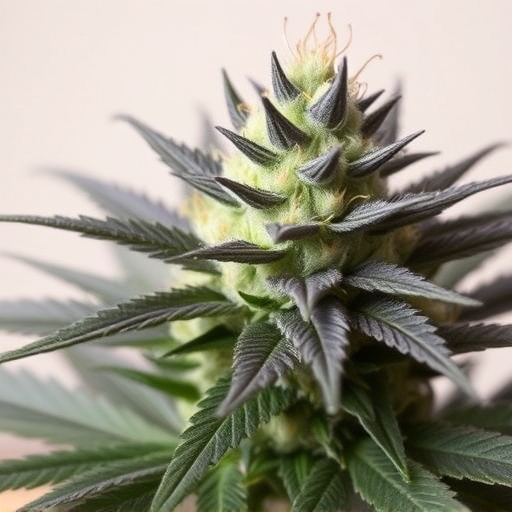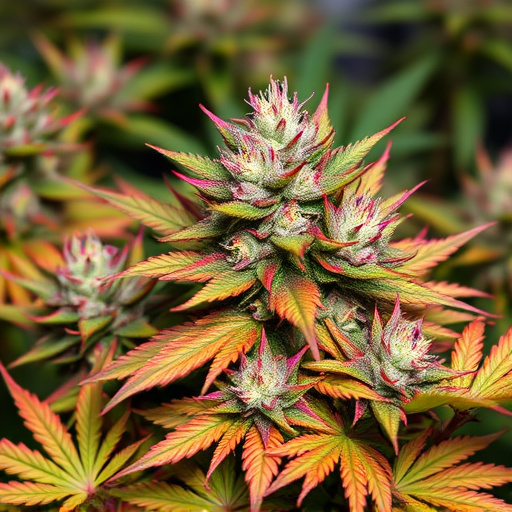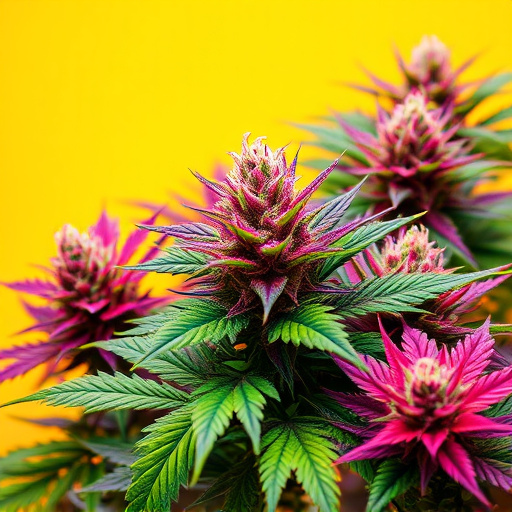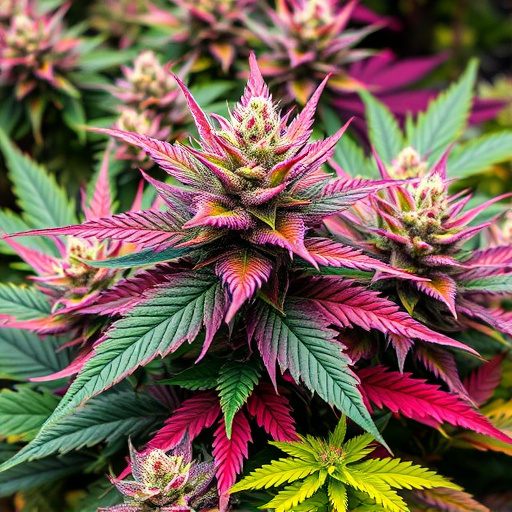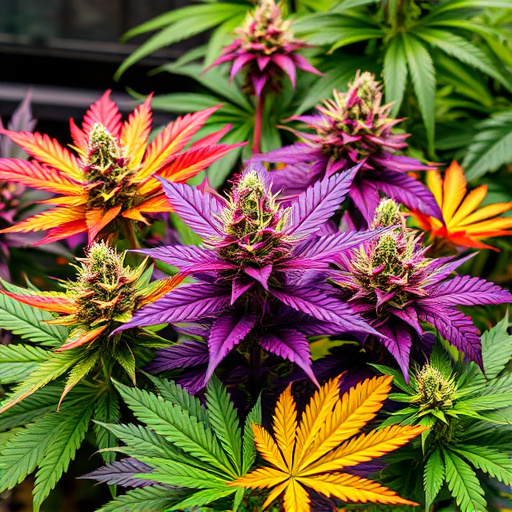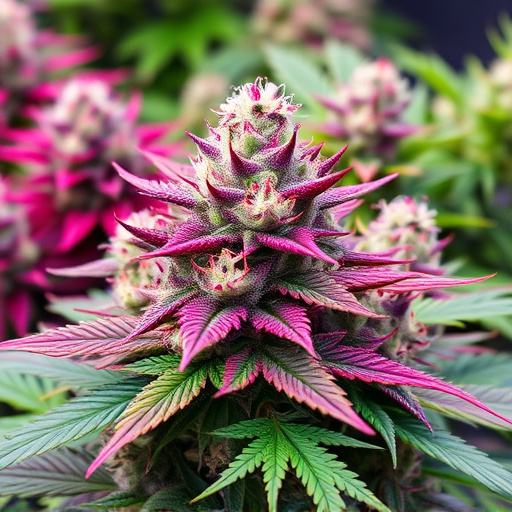Excessive smoking of potent, colorful marijuana strains can severely harm mental health, leading to anxiety, depression, psychosis, and cognitive impairment. High THC levels disrupt brain chemistry, impacting mood, perception, and concentration. This is especially dangerous for young users with developing brains. Recognizing these risks is crucial for promoting responsible cannabis use and supporting those struggling with mental health issues exacerbated by excessive colorful marijuana strain consumption.
“Unraveling the complexities of excessive cannabis use, this article delves into the often-overlooked consequences of smoking too much weed. While commonly perceived as harmless recreational activity, especially with the allure of ‘colorful marijuana strains,’ chronic consumption can take a significant toll on mental and physical health. From exacerbating anxiety and depression to long-term respiratory issues and cardiovascular concerns, this exploration highlights the importance of understanding the impact of excessive use. By debunking the myth of harmless strain variety, we aim to equip readers with knowledge to recognize signs of tolerance and dependence, fostering informed decisions regarding cannabis consumption.”
- The Impact on Mental Health: When Consumption Becomes Excessive
- – Exploring the potential risks to psychological well-being
- – Discussion on anxiety, depression, and cognitive function
The Impact on Mental Health: When Consumption Becomes Excessive
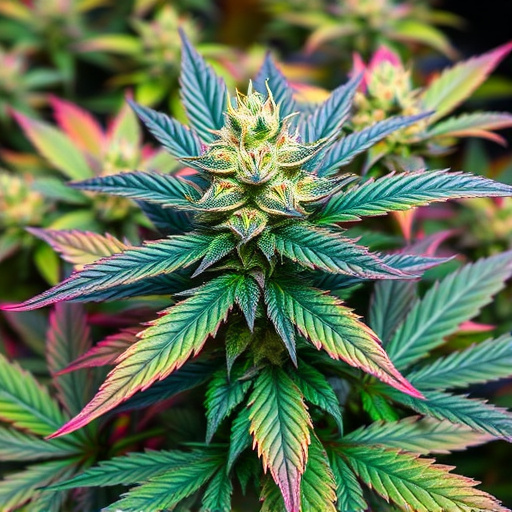
Excessive smoking of potent, colorful marijuana strains can significantly impact mental health. While cannabis is known for its potential therapeutic effects, chronic and heavy use may lead to adverse outcomes. Studies have linked excessive consumption to an increased risk of developing mental health disorders such as anxiety, depression, and psychosis. The high levels of THC in strong strains can disrupt brain chemistry, affecting mood, cognition, and perception. This is particularly concerning for young people whose brains are still developing.
The impact can manifest in various ways. Users may experience heightened feelings of paranoia, hallucinations, and a distorted sense of reality. In some cases, excessive smoking can trigger or exacerbate existing mental health conditions. Moreover, the pursuit of intenser effects through increased consumption can lead to a cycle of dependence and addiction, further complicating mental well-being. Recognizing these potential risks is crucial for fostering responsible cannabis use.
– Exploring the potential risks to psychological well-being
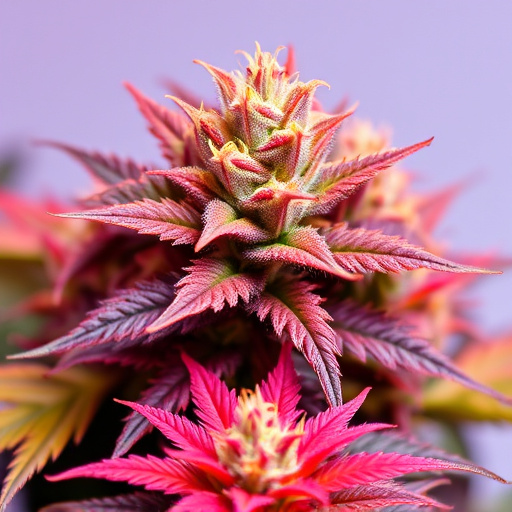
Chronic and heavy cannabis use, especially with potent colorful marijuana strains, can have significant impacts on an individual’s mental health and psychological well-being. While cannabis is known for its relaxing effects, regular consumption can disrupt the brain’s natural endocannabinoid system, which plays a crucial role in maintaining balance and mood regulation. This disruption may lead to or exacerbate conditions such as anxiety, depression, and psychosis, especially in individuals with a predisposition to these disorders.
The potency of modern cannabis strains has also increased significantly over the years, containing higher levels of THC (tetrahydrocannabinol), the primary psychoactive compound responsible for its mind-altering effects. As a result, users may experience more intense and prolonged psychological impacts, including distorted perceptions, heightened anxiety, and difficulty concentrating. These experiences can be particularly challenging for new or occasional users and may contribute to a negative perception of cannabis, often referred to as a “bad trip” or “psychoactive emergency.”
– Discussion on anxiety, depression, and cognitive function
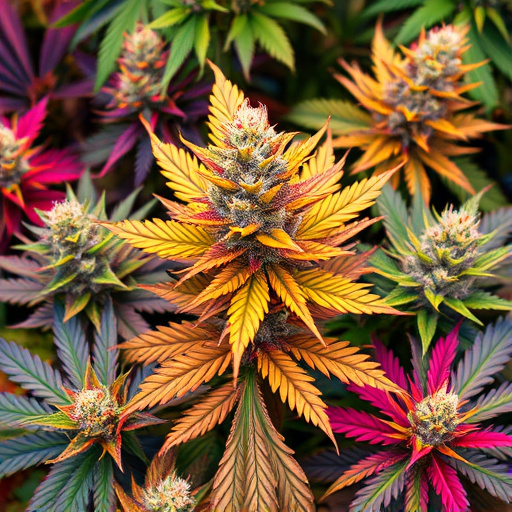
Smoking too much weed can have significant impacts on mental health, particularly when it comes to anxiety and depression. While some individuals may find relief from stress and tension through cannabis use, chronic consumption, especially of potent and colorful marijuana strains, can exacerbate existing conditions or trigger new ones. The plant’s active compounds, including THC and CBD, interact with the endocannabinoid system in the brain, which regulates mood, memory, and perception. Prolonged exposure to these substances may disrupt this delicate balance, leading to heightened anxiety symptoms or depressive episodes.
Research suggests that heavy cannabis use can affect cognitive function over time, impacting areas like attention, memory, and problem-solving abilities. This is particularly concerning for young users, as their brains are still developing. Certain colorful marijuana strains, known for their high THC content, may intensify these cognitive effects. Understanding the potential risks associated with excessive consumption is crucial to fostering responsible use and recognizing when help is needed to mitigate negative outcomes related to mental health and overall well-being.
While enjoying the effects of marijuana, especially with its diverse and colorful strains, it’s crucial to remember that excessive smoking can have significant mental health implications. The article has highlighted how heavy consumption may contribute to anxiety, depression, and cognitive impairments. By understanding these potential risks, individuals can make informed choices and maintain a healthy relationship with this substance, ensuring they don’t smoke too much weed.







